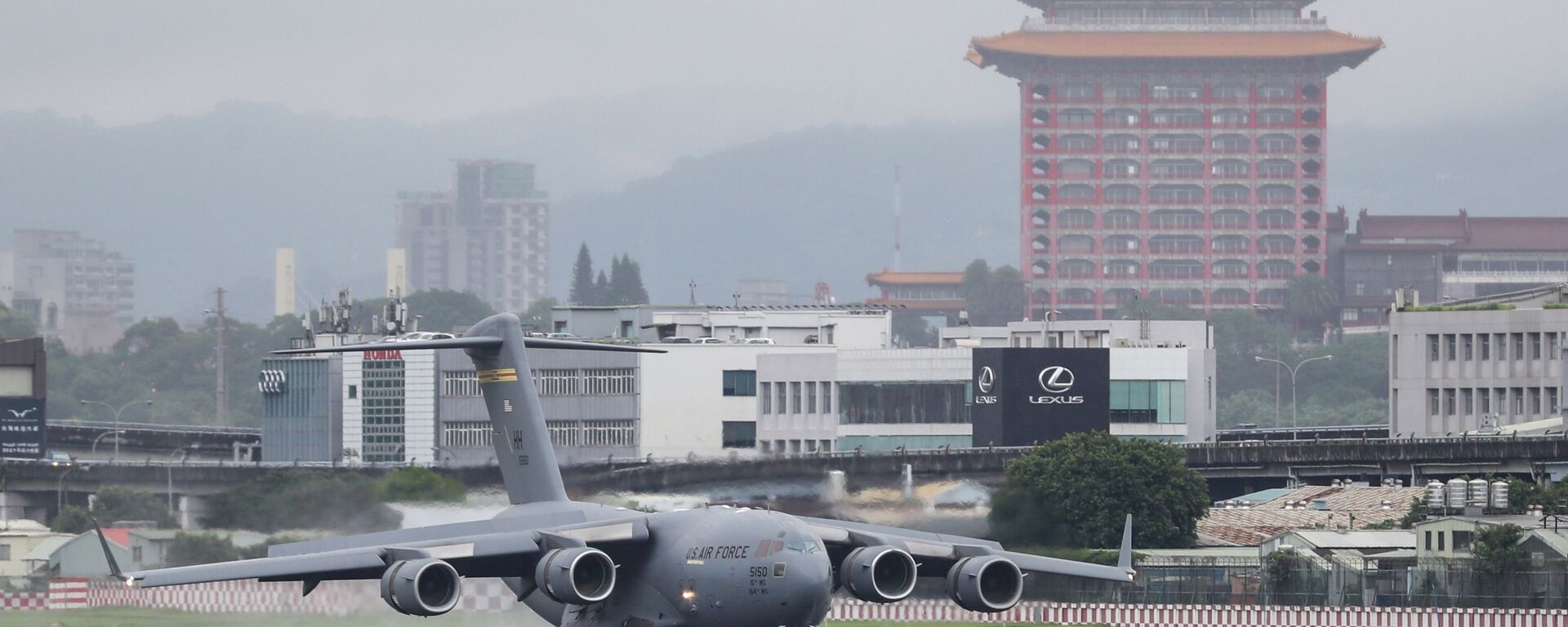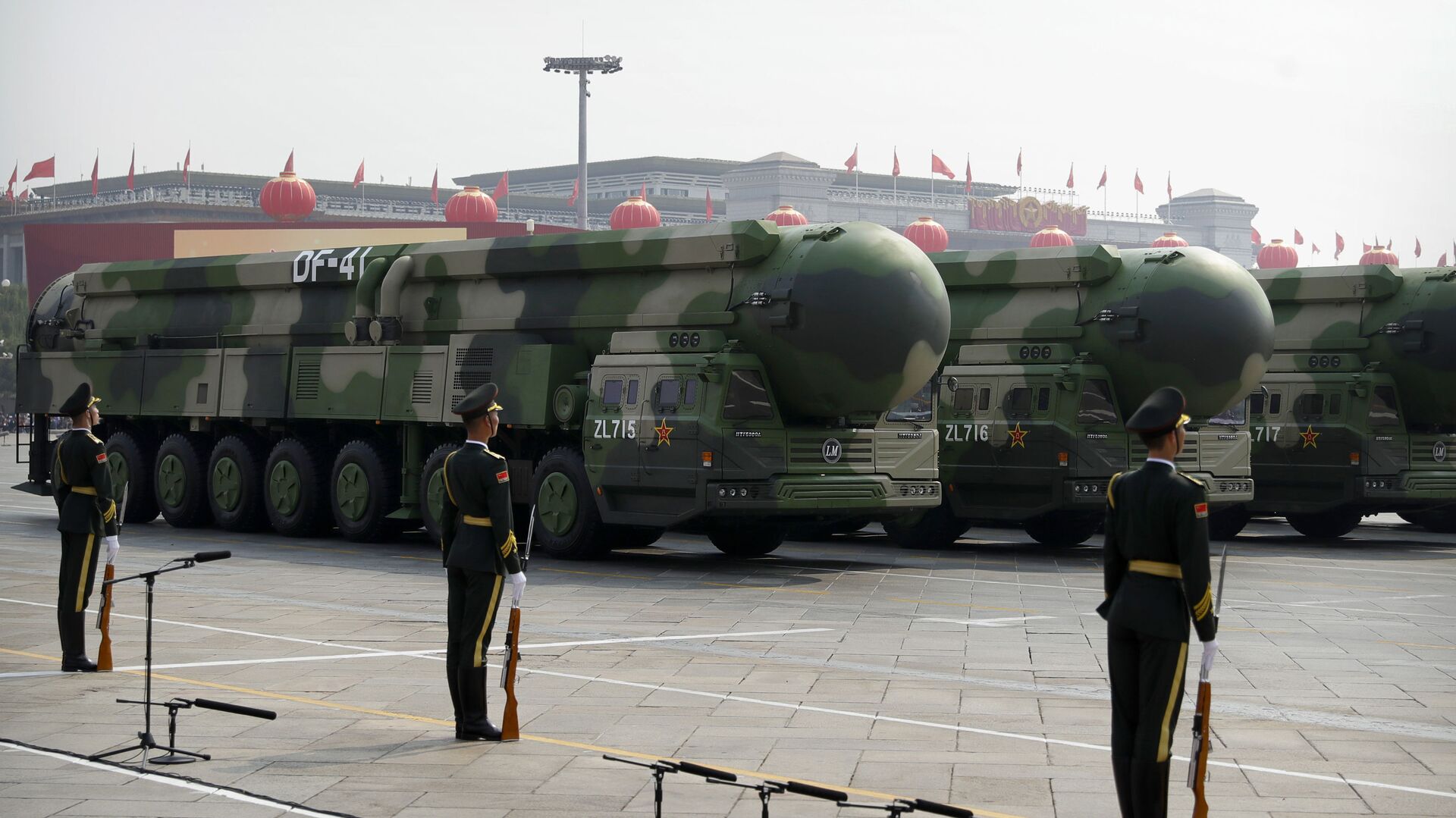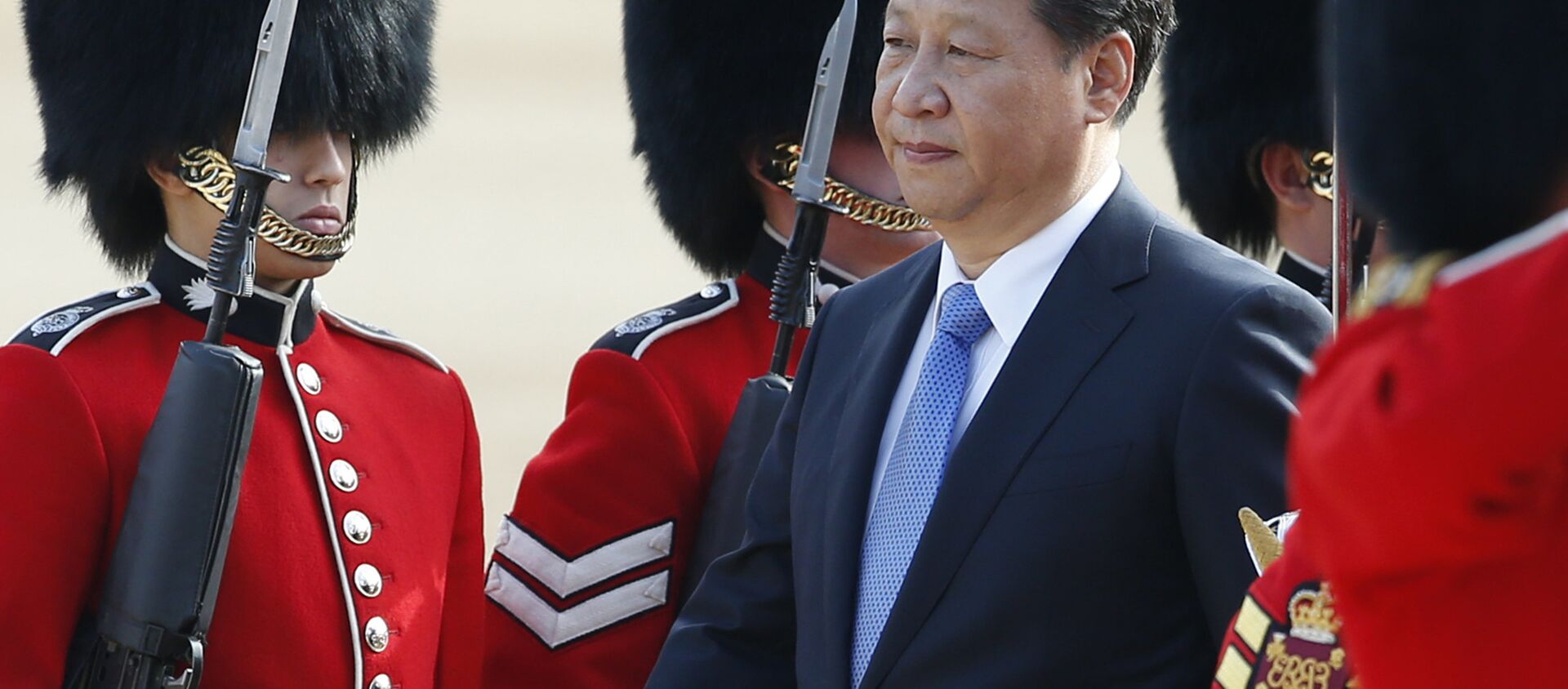https://sputnikglobe.com/20210924/chinese-diplomat-explains-why-beijing-should-scrap-no-first-use-of-nukes-policy-1089373236.html
Chinese Diplomat Explains Why Beijing Should Scrap ‘No-First-Use’ of Nukes Policy
Chinese Diplomat Explains Why Beijing Should Scrap ‘No-First-Use’ of Nukes Policy
Sputnik International
Washington has repeatedly voiced alarm over Beijing’s alleged expansion of its nuclear arsenal, with US Strategic Command chief Charles Richard describing... 24.09.2021, Sputnik International
2021-09-24T15:07+0000
2021-09-24T15:07+0000
2023-05-28T15:24+0000
aukus
china
australia
news
alliance
aukus
us
world
nuclear weapons
united kingdom (uk)
https://cdn1.img.sputnikglobe.com/img/07e5/03/01/1082219880_0:161:3071:1888_1920x0_80_0_0_acbbe25dc938505dc3c41e5bb4ae3d99.jpg
China’s former ambassador to the UN, Sha Zukang, has said that Beijing must be ready to use nuclear weapons and should scrap its “no-first-use” policy to respond to new alliances in the Indo-Pacific.According to the former envoy, Beijing's current policy has given China the “moral high ground” but the policy “'is not suitable […] unless China-US negotiations agree that neither side would use [nuclear weapons] first.”China's successful test of an atomic bomb in 1964 was followed by Beijing adopting its “no-first-use” policy in 1968, which stipulates that it will never be the first to use nuclear arms in a conflict.Sha’s remarks came as US President Joe Biden hosted the first in-person summit of leaders of the so-called "Quad" alliance, comprising Australia, India, Japan and the United States. High on the agenda was bolstering mutual cooperation amid China's alleged growing assertiveness in the region.China Slams US Over AUKUS Alliance The Chinese diplomat’s remarks were preceded by Beijing striking out at Washington last week for allegedly inciting an arms race in the Indo-Pacific region after the US, Australia, and the UK announced a new trilateral security and defence alliance, AUKUS, earlier in September. Under the AUKUS pact, Canberra will acquire at least eight advanced nuclear-powered submarines.In another development last week, the state-run Chinese tabloid, Global Times, cited an unnamed source as claiming that the recently formed AUKUS alliance may prompt Beijing into launching a nuclear strike on Australia.The source argued that Beijing may consider Canberra a nuclear threat, because atomic-powered submarines can be potentially fitted with nuclear warheads provided by the UK or the US.The source added that China and Russia are not going to treat Australia as “an innocent non-nuclear power”, but as “a US ally which could be armed with nuclear weapons anytime”.The allegations that Beijing is expanding its nuclear arsenal emerged after satellite images allegedly showed the construction of new nuclear missile silos on Chinese soil.China denies the claims, but in 2020, when the Trump administration unsuccessfully tried to include Beijing in the renewed Strategic Arms Reduction Treaty (New START), Beijing turned down the offer, insisting that it had a significantly smaller nuclear arsenal than the US or Russia which are the two parties to START.
https://sputnikglobe.com/20210907/beijing-opposes-inflating-of-natos-idea-of-nuclear-threat-from-china-1088848923.html
https://sputnikglobe.com/20210726/uk-reportedly-wants-to-oust-china-from-british-nuclear-energy-market-1083465041.html
china
australia
world
united kingdom (uk)
Sputnik International
feedback@sputniknews.com
+74956456601
MIA „Rossiya Segodnya“
2021
Oleg Burunov
https://cdn1.img.sputnikglobe.com/img/07e4/09/0b/1080424846_0:0:2048:2048_100x100_80_0_0_3d7b461f8a98586fa3fe739930816aea.jpg
Oleg Burunov
https://cdn1.img.sputnikglobe.com/img/07e4/09/0b/1080424846_0:0:2048:2048_100x100_80_0_0_3d7b461f8a98586fa3fe739930816aea.jpg
News
en_EN
Sputnik International
feedback@sputniknews.com
+74956456601
MIA „Rossiya Segodnya“
Sputnik International
feedback@sputniknews.com
+74956456601
MIA „Rossiya Segodnya“
Oleg Burunov
https://cdn1.img.sputnikglobe.com/img/07e4/09/0b/1080424846_0:0:2048:2048_100x100_80_0_0_3d7b461f8a98586fa3fe739930816aea.jpg
china, australia, news, alliance, aukus, us, world, nuclear weapons, united kingdom (uk)
china, australia, news, alliance, aukus, us, world, nuclear weapons, united kingdom (uk)
Chinese Diplomat Explains Why Beijing Should Scrap ‘No-First-Use’ of Nukes Policy
15:07 GMT 24.09.2021 (Updated: 15:24 GMT 28.05.2023) Washington has repeatedly voiced alarm over Beijing’s alleged expansion of its nuclear arsenal, with US Strategic Command chief Charles Richard describing China’s purported push for weapons as “breathtaking”. The Chinese government rejects the allegations.
China’s former ambassador to the UN, Sha Zukang, has said that Beijing must be ready to use nuclear weapons and should scrap its “no-first-use” policy to respond to new alliances in the Indo-Pacific.
Sha told a summit of Chinese nuclear policy experts on Thursday that time has come “to re-examine and fine-tune” China’s commitment only to use nukes in retaliation as the US “builds new military alliances and as it increases its military presence in our neighbourhood.”
According to the former envoy, Beijing's current policy has given China the “moral high ground” but the policy “'is not suitable […] unless China-US negotiations agree that neither side would use [nuclear weapons] first.”

7 September 2021, 12:46 GMT
China's successful test of an atomic bomb in 1964 was followed by Beijing adopting its “no-first-use” policy in 1968, which stipulates that it will never be the first to use nuclear arms in a conflict.
Sha’s remarks came as US President Joe Biden hosted the first in-person summit of leaders of the so-called "Quad" alliance, comprising Australia, India, Japan and the United States. High on the agenda was bolstering mutual cooperation amid China's alleged growing assertiveness in the region.
China Slams US Over AUKUS Alliance
The Chinese diplomat’s remarks were preceded by Beijing striking out at Washington last week for allegedly inciting an arms race in the Indo-Pacific region after the US, Australia, and the UK announced
a new trilateral security and defence alliance, AUKUS, earlier in September. Under the AUKUS pact, Canberra will acquire at least eight advanced nuclear-powered submarines.
In another development last week, the state-run Chinese tabloid, Global Times, cited an unnamed source as claiming that the recently formed AUKUS alliance may prompt Beijing into launching a nuclear strike on Australia.
The source argued that Beijing may consider Canberra a nuclear threat, because atomic-powered submarines can be potentially fitted with nuclear warheads provided by the UK or the US.
“This would make Australia a potential target for a nuclear strike, because nuclear-armed states such as China and Russia are directly facing the threat from Australia's nuclear submarines which serve US strategic demands,” the insider asserted.
The source added that China and Russia are not going to treat Australia as “an innocent non-nuclear power”, but as “a US ally which could be armed with nuclear weapons anytime”.
This followed the US State Department noting “with deep concern the rapid growth of [China's] nuclear arsenal which highlights how Beijing has sharply deviated from its decades-old nuclear strategy based on minimum deterrence.”
The allegations that Beijing is expanding its nuclear arsenal emerged after satellite images allegedly showed the construction of new nuclear missile silos on Chinese soil.
China denies the claims, but in 2020, when the Trump administration unsuccessfully tried to include Beijing in
the renewed Strategic Arms Reduction Treaty (New START), Beijing turned down the offer, insisting that it had a significantly smaller nuclear arsenal than the US or Russia which are the two parties to START.





